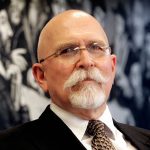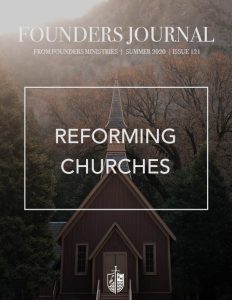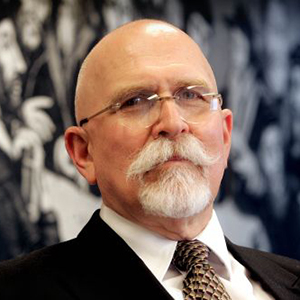As is well known, the book of Proverbs is replete with references to humility. We shall not be able to review them all, so I propose to look a bit more closely at some. 1:1-8:
The proverbs of Solomon, son of David, king of Israel: To know wisdom and instruction, to understand words of insight, to receive instruction in wise dealing, in righteousness, justice, and equity; to give prudence to the simple, knowledge and discretion to the youth— Let the wise hear and increase in learning, and the one who understands obtain guidance, to understand a proverb and a saying, the words of the wise and their riddles. The fear of the Lord is the beginning of knowledge; fools despise wisdom and instruction. (Proverbs 1:1-8).
Contrary to modern standards, humility is not only in order to wisdom but is of the very essence of it. It was Socrates who said, “All I know is that I know nothing.” Still better, Paul wrote under inspiration of the Spirit of God, ” If anyone imagines that he knows something, he does not yet know as he ought to know” (2 Cor. 8:2). More caution in the way we handle truth is always appropriate. The recognition that our insights, however substantial, are still but pale reflections of reality is necessary for further growth in understanding.
We worship in a church that is both Reformed and Baptist. Reformed Baptists are noted for their firm doctrinal, sometimes overly doctrinaire positions. We love the truth and are determined to measure everyone by its standards. It would do us all a great deal of good to recognize the validity of the insight of Socrates and the revealed warning from Paul. The one arises from the common grace of observation and the other an inspired diagnosis of reality. Do we now “have” the truth? All of it? Has God no further light to break forth from his word?
While we affirm all that is revealed and work toward a consistent presentation of it, does not the challenge of the great spheres of mystery in any of our doctrines promote childlike humility even as we affirm the revealed truth we have. Do we truly understand all that we profess to know? Are we able to connect the dots, leap over the gaps of our knowledge and create a full, well-rounded, perfect picture of reality? Do we really know where and how divine sovereignty and human responsibility meet? Are we able to plumb the depths of the incarnation? Can we understand how three are one or how God, incomparably unchanging, repented of his intentions with regard to Nineveh and did not destroy the city?
Sure, we can make seemingly-intelligent affirmations. We can pronounce purported spiritualities. But have we all the truth? No less important is the question, does the truth have us? Are we so touched by the greatness of the truth that we recognize what humility teaches, that we still need to receive instruction?
“Fools despise wisdom and instruction” (Proverbs 1:7). Recognizing our human limitations is a recognition of our creatureliness. Recognizing the infinite extent of truth and our very finite ability to encompass it all is a recognition of the greatness of the God who is the very essence of truth and the source of all truth outside of himself. Pride leads us to despise wisdom and instruction — unless we are the ones instructing. Humility renders us teachable, removes the tendency to arrogant contention, undermines our desire to be proven right and erodes the human arrogant proclivity to seek visibility or prominence by swimming against the current just to show we are alive.
“Hear, my son, your father’s instruction, and forsake not your mother’s teaching” (Prov. 1:8). Proverbs repeatedly exhorts us to hear, listen, give heed. We are inclined to do so only when we recognize that, however great have been our achievements, we know nothing as we ought to know. Then we are far more inclined to listen than to pronounce, to consider than to controvert, to qualify that to exclaim. Hear is the exhortation. Listen. Don’t talk. Don’t think you have to express yourselves at every point, give an opinion on every matter, offer advice in every circumstance.
“Whoever restrains his words has knowledge, and he who has a cool spirit is a man of understanding.” Why? Because he is wise enough to understand that he does not know it all. Ever since sin came into the world, man has suffered from a tendency to speak up on every matter so as to appear intelligent, or in an effort to control others. The humble have learned that “even a fool who keeps silent is considered wise; when he closes his lips, he is deemed intelligent (Prov. 17:27-28).
“Hear, my son, your father’s instruction, and forsake not your mother’s teaching.” Why is it necessary for the preacher to address the young in such a way, and then go on to warn against the tendency toward immediate gratification? Is this not why Paul exhorts the Corinthians, do not be children in your thinking. Be infants in evil, but in your thinking be mature (I Cor. 14:20). The problem with the Corinthians was not so much with what they knew or did not know, but with what they did with their professed knowledge—with what it did to them. They became smug, self satisfied, pleased with themselves. It is of the nature of immaturity to be arrogant, to think that one knows far more than one really does. How many times have we parents of teenagers heard our children say to us, “I know, I know” when they didn’t really? They are eager to be recognized as wise and knowledgeable, but their efforts to that end display a moral weakness that is the product of pride instead of humility. The immature believe they know. The humble know they do not. Which of them is wiser? Which commands more respect?
How long, O simple ones, will you love being simple? How long will scoffers delight in their scoffing and fools hate knowledge? If you turn at my reproof, behold, I will pour out my spirit to you; I will make my words known to you” (Prov. 1:22-23). Notice the “if” in this promise. It takes sincere humility to admit, “I was wrong” rather than submitting to the captivity of our pride. I have a beloved friend who has become a slave of his pride. He erred greatly in a certain matter and was challenged by the church he served. Unable to accept the fact that he was capable of such moral error and all the more incapable of admitting this to others, he languishes in isolation with his gifts hamstrung by his pride and his honor besmirched in the eyes of many, when all he needed to do is turn at the reproof administered and be restored.
Pride is often an expression of self-indulgence born out of a sense of insecurity. We fear to admit ignorance, relative or substantive, or to own up to sin because we do not want the depth of our human weakness to be revealed. Sometimes we are afraid to see ourselves for what we are. Instead, we lock ourselves in the prison of our pride and lay claim to what we do not have or deny what all can see is true of us. This is when we should hear the words of Prov. 3:5-8: “Trust in the Lord with all your heart, and do not lean on your own understanding. In all your ways acknowledge him, and he will make straight your paths. Be not wise in your own eyes; fear the Lord, and turn away from evil. It will be healing to your flesh and refreshment to your bones.” Relying on God rather than the image we manage to project is an act of wise humility. Acknowledging his greatness can only be done in sincerity if we admit our own limitations, and that is the only way to walk the straight path of honesty.
Self-affirmation inevitably involves subterfuge and deceit. If we are willing to see ourselves for what we are rather than being wise in our own eyes, God will loom all the larger and we will have all the more reason to lovingly fear him, turn away from the evil of pride and do others the good to which we have been called. This will be healing to our flesh and refreshment to our bones. Relieved of the necessity for pretense, we shall be able to conduct ourselves with gentleness borne out of a clear conscience before God and man.
In Prov. 8:13 God pronounces, “The fear of the Lord is hatred of evil. Pride and arrogance and the way of evil and perverted speech I hate. The evil of which Proverbs speaks is not that of misinformation. It is how we treat others in the name of truth, how we view ourselves, how we conduct our lives in the presence of God. That is why the fear of the Lord is here contrasted with pride and arrogance, and why the latter two are related to the way of evil and perverted speech. These all are the object of God’s holy hatred. Pride and godliness do not go together.
Arrogance and the fear of the Lord are opposites. In consequence, Prov. 11:20 declares, “Those of crooked heart are an abomination to the Lord, but those of blameless ways are his delight.” Of course, the context points toward moral behavior in society such as kindness, generosity, integrity in commerce. But are the opposite of these not the product of a pride that drives us to view our advantage as more important than others’ welfare because we are ultimately worth more? And is that not the opposite of humility? We sacrifice truth to serve our interests because we consider our interests more valuable than truth, our lives more valuable than the honor of God. We sacrifice the welfare of others for the sake our truth and make believe it is the truth of God.
The truth is that there is no security in pride; our very homes, the places where we relax, put down defenses and enjoy the world, cannot protect us. “The Lord tears down the house of the proud” (Prov. 15:25). but maintains the widow’s boundaries. Widows, of course, are the weakest, the most vulnerable of society. God protects the weak. He reaches out in defense of the vulnerable. If you are prepared to recognize, accept and admit your vulnerability, God will protect you. But if you insist on laying claim to strengths you do not have, you have no grounds to expect God’s protection.
“Pride goes before destruction, and a haughty spirit before a fall. It is better to be of a lowly spirit with the poor than to divide the spoil with the proud” (Prov. 16:19-20). Of course, the reason for the former statement is in the latter. To be among the proud who ravish, humiliate and suppress others is an expression of a haughty spirit. We should prefer to be of a lowly spirit even if it means being among the poor rather than to divide the spoil with the proud because we will have God on our side, rather than tearing down our houses. On the other hand, before destruction a man’s heart is haughty, but humility comes before honor (Prov. 18:12), and again: “one’s pride will bring him low, but he who is lowly in spirit will obtain honor” (Prov. 29:23).
If you are like me, these exhortations are immensely relevant. I find myself constantly inclined to pride of one kind or another. I find myself inclined to assert myself in an effort to mask my weakness and present myself as better than I am. I am occupied all too little with being instead of seeming to be. As a Christian, I should be striving after humility: the courage to admit what I am and the hunger to be in fact better than I appear to be.
Thank God for mercy, because I constantly fail.





























